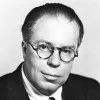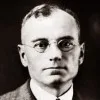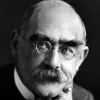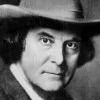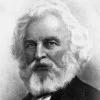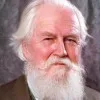The religion that has to be supported by law is without value, not only, but a fraud and curse. The religious argument that has to be supported by a musket, is hardly worth making. A prayer that must have a cannon behind it, better never be uttered. Forgiveness ought not to go in partnership with shot and shell. Love need not carry knives and revolvers.
Robert Green Ingersoll (1833-1899) American lawyer, agnostic, orator
Speech (1876-07-04), “Centennial Oration [The Declaration of Independence],” Peoria, Illinois
(Source)
Quotations about:
influence
Note not all quotations have been tagged, so Search may find additional quotes on this topic.
ALCESTE: His social polish can’t conceal his nature;
One sees at once that he’s a treacherous creature;
No one could possibly be taken in
By those soft speeches and that sugary grin.
The whole world knows the shady means by which
The low-brow’s grown so powerful and rich,
And risen to a rank so bright and high
That virtue can but blush, and merit sigh.
[Au travers de son masque on voit à plein le traître;
Partout il est connu pour tout ce qu’il peut être ;
Et ses roulements d’yeux, et son ton radouci
N’imposent qu’à des gens qui ne sont point d’ici.
On sait que ce pied plat, digne qu’on le confonde,
Par de sales emplois s’est poussé dans le monde,
Et que, par eux son sort de splendeur revêtu
Fait gronder le mérite et rougir la vertu.]Molière (1622-1673) French playwright, actor [stage name for Jean-Baptiste Poquelin]
Le Misanthrope, Act 1, sc. 1 (1666) [tr. Wilbur (1954)]
(Source)
(Source (French)). Alternate translations:You may plainly perceive the traitor through his mask; he is well known everywhere in his true colours; his rolling eyes and his honeyed tones impose only on those who do not know him. People are aware that this low-bred fellow, who deserves to be pilloried, has, by the dirtiest jobs, made his way in the world; and that the splendid position he has acquired makes merit repine and virtue blush.
[tr. Van Laun (1878)]The treacherous rascal is plainly seen through his mask, he is everywhere known for what he is; his rolling eyes and soft tones impose only upon strangers. People know that this wretched fellow, who ought to be hanged, has pushed his way in the world by dirty jobs, and that the splendid condition he finds himself in through them makes merit grumble and virtue blush.
[tr. Mathew (1890)]Behind his mask the knave is seen, wherever he is known, for what he is; the rolling of his eye, his bated voice, impose on none but those who do not live here. All others know that the sneaking fellow, fit only to be shunned, has by the foulest actions foisted himself upon society, where his career, by their connivance clothed in splendor, makes merit groan and virtue blush.
[tr. Wormeley (1894)]You can clearly see the traitor through his mask. He is known everywhere for what he is: his rolling eyes and his honeyed tones only impose on those people who do not know him. They know that this low-bred cur, who deserves to be exposed, has, by the dirtiest means, pushed himself on in the world; and the splendid position he has acquired by these means makes merit repine and virtue blush.
[tr. Waller (1903)]The traitor's face shows plainly through his mask,
And everywhere he's known for what he is;
His up-turned eyes, his honeyed canting voice,
Impose on none but strangers. All men know
That this confounded, low-bred, sneaking scamp
Has made his way by doing dirty jobs,
And that the splendid fortune these have brought him
Turns merit bitter and makes virtue blush.
[tr. Page (1913)]Behind his mask the scoundrel's visible.
Here everybody knows his character;
And his protesting eyes, his honeyed tongue,
Impose on no one but a casual stranger.
And that contemptible boor notoriously
Has made his way in the world by dirty means,
So that his present splendid situation
Makes merit grumble and makes virtue blush.
[tr. Bishop (1957)]Right through his mask men see the traitor's face,
And everywhere give him his proper place;
His wheedling eyes, his soft and cozening tone,
Fool only those to whom he is not known.
That this knave rose, where he deserved to fall,
By shameful methods, is well known to all,
And that his state, which thanks to these is lush,
Makes merit murmur and makes virtue blush.
[tr. Frame (1967)]
People, in forming their opinions of others, are usually lazy enough to go by whatever is most obvious or whatever chance remark they happen to hear. So the best policy is to dictate to others the opinion you want them to have of you.
Judith Martin (b. 1938) American author, journalist, etiquette expert [a.k.a. Miss Manners]
Style and Substance: A Comedy of Manners, ch. 7 (1986)
(Source)
Printer’s ink has been running a race against gunpowder these many, many years. Ink is handicapped, in a way, because you can blow up a man with gunpowder in half a second, while it may take twenty years to blow him up with a book. But the gunpowder destroys itself along with its victim, while a book can keep on exploding for centuries.
Christopher Morley (1890-1957) American journalist, novelist, essayist, poet
The Haunted Bookshop, ch. 6 [Roger Mifflin] (1919)
(Source)
In England such concepts as justice, liberty and objective truth are still believed in. They may be illusions, but they are very powerful illusions.
George Orwell (1903-1950) English writer [pseud. of Eric Arthur Blair]
The Lion and the Unicorn: Socialism and the English Genius, Part 1 “England Your England,” sec. 2 (1941)
(Source)
True or false, what is said about men often figures as large in their lives, and above all in the fate that befalls them, as what they do.
[Vrai ou faux, ce qu’on dit des hommes tient souvent autant de place dans leur vie et souvent dans leur destinée que ce qu’ils font.]Victor Hugo (1802-1885) French writer
Les Misérables, Part 1 “Fantine,” Book 1 “An Upright Man,” ch. 1 (1.1.1) (1862) [tr. Donougher (2013)]
(Source)
(Source (French)). Alternate translations:Be it true or false, what is said about men often has as much influence upon their lives, and especially upon their destinies, as what they do.
[tr. Wilbour (1862)]What is said of men, whether it be true or false, often occupies as much space in their life, and especially in their destiny, as what they do.
[tr. Wraxall (1862)]True or false, that which is said of men often occupies as important a place in their lives, and above all in their destinies, as that which they do.
[tr. Hapgood (1887)]What is reported of men, whether it be true or false, may play as large a part in their lives, and above all in their destiny, as the things they do.
[tr. Denny (1976)]Whether true or false, what is said about men often has as much influence on their lives, and particularly on their destinies, as what they do.
[tr. Wilbour/Fahnestock/MacAfee (1987)]
But words are things, and a small drop of ink,
Falling like dew, upon a thought, produces
That which makes thousands, perhaps millions, think.
Books are the bees which carry the quickening pollen from one to another mind.
James Russell Lowell (1819-1891) American diplomat, essayist, poet
“Nationality in Literature,” North American Review, Article 10 (1849-07)
(Source)
Reviewing Henry Wadsworth Longfellow, Kavanagh (1849).
Generally speaking, men are influenced by books which clarify their own thought, which express their own notions well, or which suggest to them ideas which their minds are already predisposed to accept.
Carl L. Becker (1873-1945) American historian
The Declaration of Independence, ch. 2 “Natural Rights Philosophy” (1922)
(Source)
The superstition into which we’re born,
Even when we recognize it, loses not
Its power on us! Not all those are free
Who ridicule their chains.[Der Aberglaub’, in dem wir aufgewachsen,
Verliert, auch wenn wir ihn erkennen, darum
Doch seine Macht nicht über uns. — Es sind
Nicht alle frei, die ihrer Ketten spotten.]Gotthold Lessing (1729-1781) German playwright, philosopher, dramaturg, writer
Nathan the Wise [Nathan der Weise], Act 4, sc. 4 [Templar] (1779) [tr. Corbett (1883)]
(Source)
(Source (German)). Alternate translations:Yet the superstition
in which we have grown up, not therefore loses
when we detect it, all its influence on us.
Not all are free that can bemock their fetters.
[tr. Taylor (1790)]The superstition in which we grew up,
Does not cease influencing us, e'en after
We have discover'd its absurdity.
Not all are free who do bemock their fetters.
[tr. Reich (1860)]The superstition in which we were brought up never loses its power over us, even after we understand it.
[Source (1866)]And yet the superstitions we have learned
From education, do not lose their power
When we have found them out; nor are all free
Whose judgment mocks the galling chains they wear.
[tr. Boylan (1878)]The superstition in which we have grown up
Does not lose (even if we see through it)
Its power on us, on that account;
All are not free who mock their chains.
[tr. Jacks (1894)]The superstitions of our early years,
E'en when we know them to be nothing more,
Lose not for that their hold upon our hearts;
Not all are free who ridicule their chains.
[tr. Maxwell (1917)]The superstition in which we have grown up does not lose its power over us even for the reason that we recognize it as such. Not all are free who mock their chains.
[tr. Reinhardt (1950)]The superstition in which we grew up,
Though we may recognize it, does not lose
Its power over us -- Not all are free
Who make mock of their chains.
[tr. Morgan (1955)]Merely because we see the defects of the superstition we grew up in, it doesn't lose its hold upon our souls! Those men who mock their chains are not all free!
[tr. Ade (1972)]
Childhood is a thing that happens so early you don’t forget it. Everything else you grow out of, but you never recover from childhood.
Beryl Bainbridge (1932-2010) English novelist
“Beryl Bainbridge and Her Tenth Novel,” interview by Willa Petschek, New York Times (1981-03-01)
(Source)
So strong is custom formed in early years.
[Adeo in teneris consuescere multum est.]
Virgil (70-19 BC) Roman poet [b. Publius Vergilius Maro; also Vergil]
Georgics [Georgica], Book 2, l. 272ff (2.272) (29 BC) [tr. Greenough (1900)]
(Source)
Discussing how, when transplanting vines, wise farmers try to match the soil and orientation of the plant toward the sun to the conditions where they first sprouted. The same phrase is often extended (when extracted like this) to the lasting effects of early training on children. See also Pope.
(Source (Latin)). Alternate translations:Such strength hath custome in each tender soule.
[tr. Ogilby (1649)]So strong is Custom; such Effects can Use
In tender Souls of pliant Plants produce.
[tr. Dryden (1709), ll. 366-367]So strong is habit's force in tender age.
[tr. Nevile (1767), l. 302]So custom strongly sways the youthful year.
[tr. Sotheby (1800)]Of such avail is custom in tender years.
[tr. Davidson (1854)]So custom lords it o'er the youthful wood.
[tr. Blackmore (1871), l. 324]Such is the force of habits formed in early years.
[tr. Wilkins (1873)]So strong is custom formed in early years.
[tr. Rhoades (1881)]So powerful is habit in things of tender age.
[tr. Bryce (1897)]So strong is the habit of infancy.
[tr. Mackail (1899)]So potent is early habit's control.
[tr. Way (1912)]So loth to change
Are a young creature's ways.
[tr. Williams (1915)]So strong is habit in tender years.
[tr. Fairclough (Loeb) (1916)]So important are habits developed in early days.
[tr. Day-Lewis (1940)]For habit dominates the early stage.
[tr. Bovie (1956)]So much effect has habit on the young.
[tr. Wilkinson (1982)]We grow accustomed to so much in tender years.
[tr. Kline (2001)]How powerful the innate habits of tender plants!
[tr. Lembke (2004)]So powerfully runs habit in the tender stems.
[tr. Johnson (2009)]Such is the need, when young, of what's familiar.
[tr. Ferry (2015)]
One knows not whether nature doth not impose some secrecy upon him who has been privy to certain things. At least, it is to be doubted whether it be good to blazon such. If some books are deemed most baneful and their sale forbid, how, then, with deadlier facts, not dreams of doting men? Those whom books will hurt will not be proof against events. Events, not books, should be forbid.
I haven’t got the slightest idea how to change people, but still I keep a long list of prospective candidates just in case I should ever figure it out.
David Sedaris (b. 1956) American humorist, comedian, author
Naked, “Something for Everyone” (1997)
(Source)
I don’t think about whether people will remember me or not. I’ve been an okay person. I’ve learned a lot. I’ve taught people a thing or two. That’s what’s important. Sooner or later the public will forget you, the memory of you will fade. What’s important are the individuals you’ve influenced along the way.
There is, perhaps, no surer mark of folly, than an attempt to correct the natural infirmities of those we love. The finest composition of human nature, as well as the finest china, may have a flaw in it; and this, I am afraid, in either case, is equally incurable; though, nevertheless, the pattern may remain of the highest value.
Henry Fielding (1707-1754) English novelist, dramatist, satirist
The History of Tom Jones, a Foundling, Book 2, ch. 7 (1749)
(Source)
The object of what we call deportment and good manners is to attain that which can otherwise be attained only by force or not even by force.
[Durch das, was wir Betragen und gute Sitten nennen, soll das erreicht werden, was außerdem nur durch Gewalt, oder auch nicht einmal durch Gewalt zur erreichen ist.]
Johann Wolfgang von Goethe (1749-1832) German poet, statesman, scientist
Elective Affinities [Die Wahlverwandtschaften], Part 2, ch. 5, “From Ottilie’s Journal [Aus Ottiliens Tagebuche]” (1809) [tr. Hollingdale (1971)]
(Source)
(Source (German)). Alternate translation:That which we call politeness and good breeding effects what otherwise can only be obtained by violence, or not even that.
[Niles ed. (1872)]
The mind is formed by the knowledge and the direction of ideas it receives and the guidance it is given. Great things alone can make a great mind, and petty things will make a petty mind unless a man rejects them as completely alien.
[Weil der menschliche Geist durch die ihm mitgetheilten Kenntnisse und Ideenrichtungen erzogen wild. Nor das Grosse kann ihn grostartig, das Kleine nur kleinlich machen, wenn er et nicht wie elwas ganz Fremdes ganz von sich stösst.]
Karl von Clausewitz (1780-1831) Prussian soldier, historian, military theorist
On War [Vom Kriege], Book 2, ch. 2 “On the Theory of War [Über die Theorie des Krieges],” § 40 (2.2.40) (1832) [tr. Howard & Paret (1976)]
(Source)
(Source (German)). Alternate translations:The human mind is trained by the knowledge imparted to it, and the direction given to its ideas. Only what is great can make it great; the little can only make it little, if the mind itself does not reject it as something repugnant.
[tr. Graham (1873)]The human mind is formed by the kinds of knowledge imparted to it and the direction given to its ideas. Only what is great can make it great; the little can only make it little, if the mind itself does not reject it as something repugnant to it.
[tr. Jolles (1943)]
If any young Miss reads this autobiography and wants a little advice from a very old hand, I will say to her, when a man threatens to commit suicide after you have refused him, you may be quite sure he is a vain, petty fellow or a great goose; if you felt any doubts about your decision before, you need have none after this and under no circumstances must you give way. To marry a man out of pity is folly; and if you think you are going to influence the kind of fellow who has “never had a chance, poor devil,” you are profoundly mistaken. One can only influence the strong characters in life, not the weak; and it is the height of vanity to suppose that you can make an honest man of anyone.
Margot Asquith (1864-1945) British socialite, author, wit [Emma Margaret Asquith, Countess Oxford and Asquith; Margot Oxford; née Tennant]
Autobiography, Vol. 1, ch. 7 (1920)
(Source)
In a similar vein, in More or Less about Myself, ch. 5 (1934) she wrote: "It is easier to influence strong than weak characters in life."
We should strive only to think and speak rightly, without seeking to win others over to our own taste and opinions; that is too great an undertaking.
[Il faut chercher seulement à penser et à parler juste, sans vouloir amener les autres à notre goût et à nos sentiments; c’est une trop grande entreprise.]
Jean de La Bruyère (1645-1696) French essayist, moralist
The Characters [Les Caractères], ch. 1 “Of Works of the Mind [Des Ouvrages de l’Esprit],” § 2 (1.2) (1688) [tr. Stewart (1970), “Of Books”]
(Source)
(Source (French)). Alternate translations:We must only endeavour to think and speak justly our selves, without aiming to bring others over to our taste and sentiment; We shall find that too great an enterprize.
[Bullord ed. (1696) "Of Polite Learning"]We must only endeavour to think and speak justly our selves, without aiming to bring others over to our Taste and Sentiments; that would be too great an Enterprize.
[Curll ed. (1713), "Of Works of Wit and Eloquence"]We must only endeavour to think and speak justly ourselves, without aiming to bring others over to our Taste and Sentiments; that would be too great an Enterprize.
[Browne ed. (1752), "Of Works of Genius"]We should only endeavor to think and speak correctly ourselves, without wishing to bring others over to our taste and opinions; this would be too great an undertaking.
[tr. Van Laun (1885)]
I am, by calling, a dealer in words; and words are, of course, the most powerful drug used by mankind.
Rudyard Kipling (1865-1936) English writer
“Surgeons and the Soul,” speech, Royal College of Surgeons (14 Feb 1923)
(Source)
Words are more powerful than perhaps anyone suspects, and once deeply engraved in a child’s mind, they are not easily eradicated.
May Sarton (1912-1995) Belgian-American poet, novelist, memoirist [pen name of Eleanore Marie Sarton]
I Knew a Phoenix, “A Belgian School” (1959)
(Source)
A cloudy day, or a little sunshine, have as great an influence on many constitutions as the most real blessings or misfortunes.
Joseph Addison (1672-1719) English essayist, poet, statesman
Essay (1711-09-05), The Spectator, No. 162
(Source)
In this and like communities, public sentiment is everything. With public sentiment, nothing can fail; without it nothing can succeed. Consequently, he who molds public sentiment goes deeper than he who enacts statutes or pronounces decisions. He makes statues and decisions possible or impossible to be executed.
Abraham Lincoln (1809-1865) American lawyer, politician, US President (1861-65)
Lincoln-Douglas Debates, Debate #1, Ottawa, Illinois (21 Aug 1858)
(Source)
The radical novelty of modern science lies precisely in the rejection of the belief, which is at the heart of all popular religion, that the forces which move the stars and atoms are contingent upon the preferences of the human heart.
Walter Lippmann (1889-1974) American journalist and author
A Preface to Morals, Part 1, ch. 7 (1929)
(Source)
People think that stories are shaped by people. In fact, it’s the other way around.
There are those in the industry who believe broadcasting can move men, and even some who believe it could move mountains, but they are outnumbered by those who believe all it has to do is move goods.
Alexander Kendrick (1910-1991) American journalist
Prime Time: The Life of Edward R. Murrow (1969)
(Source)
But, of all motives, none is better adapted to secure influence and hold it fast than love; nothing is more foreign to that end than fear. […] For fear is but a poor safeguard of lasting power; while affection, on the other hand, may be trusted to keep it safe for ever.
[Omnium autem rerum nec aptius est quicquam ad opes tuendas ac tenendas quam diligi nec alienius quam timeri. … Malus enim est custos diuturnitatis metus contraque benivolentia fidelis vel ad perpetuitatem.]
Marcus Tullius Cicero (106-43 BC) Roman orator, statesman, philosopher
De Officiis [On Duties; On Moral Duty; The Offices], Book 2, ch. 7 (2.7) / sec. 23 (44 BC) [tr. Miller (1913)]
(Source)
Discussing the fate of tyrants such as Julius Caesar. Original Latin. Alternate translations:Now of all those methods, which tend to the advancement and maintenance of our interest, there is none more proper and convenient than love, and none more improper and inconvenient than fear. [...] For obedience, proceeding from fear, cannot possibly be lasting; whereas that which is the effect of love will be faithful for ever.
[tr. Cockman (1699)]Of all means there is none better fitted for supporting and retaining our influence than to be loved; or more foreign to it, than to be feared. [...] Fear is a false and short-lived security, but the love of men is faithful and lasting.
[tr. McCartney (1798)]Now, of all things there is none more adapted for supporting and retaining our influence than to be loved, nor more prejudicial than to be feared. [...] For fear is but a bad guardian to permanency, whereas affection is faithful even to perpetuity.
[tr. Edmonds (1865)]But of all things nothing tends so much to the guarding and keeping of resources as to be the object of affection; nor is anything more foreign to that end than to be the object of fear. [...] For fear is but a poor guardian for permanent possession, and, on the other hand, good will is faithful so long as there can be need of its loyalty.
[tr. Peabody (1883)]Of all the means of maintaining power, love is the best, the worst fear. [...] Fear is a poor guardian of lasting power; love will keep it safe for ever.
[tr. Gardiner (1899)]However, among all qualities there is no more appropriate way to preserve and defend one's resources than to be well-liked, nothing less appropriate than to be feared. [...] To arouse fear in others is a bad guarantee of longevity, while on the other hand good will is faithful unto eternity.
[tr. Edinger (1974)]
When the conduct of men is designed to be influenced, persuasion, kind, unassuming persuasion, should ever be adopted. It is an old and true maxim “that aa drop of honey catches more flies than a gallon of gall.” If you would win a man to your cause, first convince him that you are his sincere friend. Therein is a drop of honey that catches his heart, which, say what you will, is the great high-road to his reason, and which, when once gained, you will find but little trouble in convincing his judgement of the justice of your cause, if indeed that cause really be a just one.
Abraham Lincoln (1809-1865) American lawyer, politician, US President (1861-65)
Speech, Washingtonian Temperance Society, Springfield, Illinois (22 Feb 1842)
(Source)
The head of the fish is the first part to smell.
[Ἰχθὺς ἐκ τῆς κεφαλῆς ὄζειν ἄρχεται: ἐπὶ τῶν ἐπιστάτας φαύλους ἐχόντων]
Michael Apostolius (c. 1420 - c. 1480) Greek teacher, writer, copyist [Apostolius Paroemiographus, i.e., Apostolius the proverb-writer]
Apostolius 9.18.12, Tilley F 304
(Source)
See Erasmus, Adages, Book 4, ch. 2, #97 [tr. Drysdall], who cites Apostolius, who appears to have been the first to record the proverb:"The head of a fish begins to stink first." Used of bad rulers, whose contagion poisons the rest of the people. The expression seems to derive from the language of common people.
[Piscis primum a capite foetet ... Piscis a capite primum incipit putere. Dictum in malos principes, quorum contagione reliquum vulgus inficitur. Apparet ab idiotarum vulgo sumptum.]
Alt. trans.:
- "Fish start to stink at the top: [this is a proverb] applied to people who have scoundrels for leaders." [tr. @sentantiq]
- "The fish always stinks from the head downwards: The freshness of a dead fish can be judged from the condition of its head. Thus, when the responsible part (as the leaders of a country, etc.) is rotten, the rest will soon follow. ἰχθὺς ἐκ τῆς κεφαλῆς ὄζειν ἄρχεται, a fish begins to stink from the head." -- Jennifer Speake, ed., Oxford Dictionary of Proverbs (2015) [Source]
We shape our buildings, and afterwards our buildings shape us.
Winston Churchill (1874-1965) British statesman and author
Speech, House of Commons (28 Oct 1943)
(Source)
During the debate over rebuilding the House of Commons, which had been destroyed during a German bombing.
Home is in every sentence of your writing.
Maya Angelou (1928-2014) American poet, memoirist, activist [b. Marguerite Ann Johnson]
“The Art of Fiction,” Paris Review, #116, Interview with George Plimpton (1990)
(Source)
An author in his book must be like God in the universe, present everywhere and visible nowhere.
Gustave Flaubert (1821-1880) French writer, novelist
Letter to Louise Colet (9 Dec 1852)
(Source)
In a later letter to Leoroyer de Chanepie (18 Mar 1857), he repeated the sentiment: "The artist must be in his work as God is in creation, invisible and all-powerful; one must sense him everywhere but never see him."
“Praying for particular things,” said I, “always seems to me like advising God how to run the world. Wouldn’t it be wiser to assume that He knows best?”
“On the same principle,” said he, “I suppose you never ask a man next to you to pass the salt, because God knows best whether you ought to have salt or not. And I suppose you never take an umbrella, because God knows best whether you ought to be wet or dry.”
“That’s quite different,” I protested.
“I don’t see why,” said he. “The odd thing is that He should let us influence the course of events at all. But since He lets us do it in one way, I don’t see why He shouldn’t let us do it in the other.”
C. S. Lewis (1898-1963) English writer, literary scholar, lay theologian [Clive Staples Lewis]
God in the Dock, Part 2, ch. 7 “Scraps,” #4 (1970)
(Source)
When you teach your son, you teach your son’s son.
The Talmud (AD 200-500) Collection of Jewish rabbinical writings
Seder Nashim, Kiddushin 30a
Paraphrase of "This serves to say to you that whoever teaches his son Torah, the verse ascribes him credit as though he taught him, and his son, and his son’s son, until the end of all generations" (alt. trans. "to him who teaches his son Torah, the Writ ascribes merit as though he had taught him, his son and his son's son until the end of all time!"). This is in turn referenced to Deut. 4:9.
Civility costs nothing, and buys everything.
Mary Wortley Montagu (1689-1762) English aristocrat, letter writer, poet [née Pierrepont]
Letter to Mary, Countess of Bute (30 May 1756)
(Source)
I suggest that the only books that influence us are those for which we are ready, and which have gone a little farther down our particular path than we have yet got ourselves.
There are few mortals so insensible that their affections cannot be gained by mildness; their confidence by sincerity; their hatred by scorn or neglect.
Johann Georg Zimmermann (1728-1795) Swiss philosophical writer, naturalist, physician
Aphorisms and Reflections on Men, Morals and Things (1800)
(Source)
PORTIA: How far that little candle throws his beams!
So shines a good deed in a weary world.
William Shakespeare (1564-1616) English dramatist and poet
Merchant of Venice, Act 5, sc. 1, l. 99ff (5.1.99-100) (1597)
(Source)
In some versions, "So shines a good deed in a naughty world."
Sometimes misattributed to Roald Dahl (or even Gene Wilder); the character Willy Wonka uses the second sentence toward the end of the film Willy Wonka and the Chocolate Factory (1971).
In the councils of government, we must guard against the acquisition of unwarranted influence, whether sought or unsought, by the military-industrial complex. The potential for the disastrous rise of misplaced power exists and will persist.
Dwight David Eisenhower (1890-1969) American general, US President (1953-61)
“Farewell Address” (17 Jan 1961)
(Source)
Mister Marvin Middle Class is really in a stew
Wond’rin’ what the younger generation’s coming to
And the taste of his martini doesn’t please his bitter tongue
Blame it on the Rolling Stones.
Blame it on the Stones; blame it on the Stones
You’ll feel so much better, knowing you don’t stand alone
Join the accusation; save the bleeding nation
Get it off your shoulders; blame it on the Stones.
The shepherd always tries to persuade the sheep that their interests and his own are the same.
No action, whether foul or fair,
Is ever done, but it leaves somewhere
A record, written by fingers ghostly,
As a blessing or a curse, and mostly
In the greater weakness or greater strength
Of the acts which follow it.
To work a Man to thy Bent: 1. Know his Inclinations. 2. Observe his Ends. 3. Search out his Weakness. And so thou mayst either draw or drive him.
Thomas Fuller (1654-1734) English physician, preacher, aphorist, writer
Introductio ad Prudentiam, Vol. 1, # 1067 (1725)
(Source)
Example has more followers than reason. We unconsciously imitate what pleases us, and insensibly approximate to the characters we most admire. In this way, a generous habit of thought and of action carries with it an incalculable influence.
Christian Nestell Bovee (1820-1904) American epigrammatist, writer, publisher
Intuitions and Summaries of Thought, Vol. 1, “Example” (1862)
(Source)
Hee that lies with the dogs, riseth with fleas.
George Herbert (1593-1633) Welsh priest, orator, poet.
Jacula Prudentum, or Outlandish Proverbs, Sentences, &c. (compiler), # 343 (1640 ed.)
(Source)
Never underestimate your power to change yourself.
Never overestimate your power to change others.
H. Jackson "Jack" Brown, Jr. (b. 1940) American writer
Life’s Little Instruction Book, #284, 285 (1991)
(Source)
Of the best rulers
The people (only) know that they exist;
The next best they love and praise;
The next they fear;
And the next they revile.
When they do not command the people’s faith,
Some will lose faith in them,
And then they resort to oaths!
But (of the best) when their task is accomplished, their work done,
The people all remark, “We have done it ourselves.”Lao-tzu (604?-531? BC) Chinese philosopher, poet [also Lao-tse, Laozi]
The Wisdom of Laotse, ch 17 (1948) [tr. Lin Yutang]
Alt. trans. [Tao-te Ching tr. Wing-Tsit Chan]:
"The best are those whose existence is merely known by the people.
The next best are those who are loved and praised.
The next are those who are feared.And the next are those who are reviled.
The great rulers accomplish their task; they complete their work.
Nevertheless their people say that they simply follow Nature."
GLENDOWER: I can call spirits from the vasty deep.
HOTSPUR: Why, so can I, or so can any man;
But will they come when you do call for them?William Shakespeare (1564-1616) English dramatist and poet
Henry IV, Part 1, Act 3, sc. 1, l. 55ff (3.1.55-57) (1597)
(Source)
SHEPHERD’S SON: He seems to be of
great authority. Close with him, give him gold; and
though authority be a stubborn bear, yet he is oft
led by the nose with gold.William Shakespeare (1564-1616) English dramatist and poet
Winter’s Tale, Act 4, sc. 4, l. 932ff (4.4.932-935) (1611)
(Source)
Par-runts of rugmonkeys everywhere are worrying that their children will want to become Force-wielding breath masked Sithlords? Sweet Cream-of-Jesus on TOAST POINTS, people!! So now we have to fear that every crib-lizard that loves Anakin Skywalker will become Evil Incarnate. It’s been a lovely planet, but I think I need to go, now.
Tell a man he is brave, and you help him to become so.
He is aloof, as if his talk
Were priced beyond the purchasing;
But once his project is contrived,
The folk will want to say of it:
“Of course! We did it by ourselves!”Lao-tzu (604?-531? BC) Chinese philosopher, poet [also Lao-tse, Laozi]
The Way of Life, ch. 17 [tr. Blakney (1955)]
Alt. trans.:
- "A good manager is best when people barely know that he exists. Not so good when people obey and acclaim him. Worse when they despise him. But of a good leader, who talks little, when his work is done -- his aim fulfilled, they will say: 'We did it ourselves.'"
- "When the effective leader is finished with his work, the people say it happened naturally."
Never doubt that a small group of thoughtful, committed citizens can change the world. Indeed, it is the only thing that ever has.
Margaret Mead (1901-1978) American anthropologist
(Attributed)
Phrase frequently attributed to Mead, but not found in her writings. The first sentence, however, is trademarked.
Mead founded the Institute for Intercultural Studies in 1944 (it dissolved in 2009). Regarding this quote, the IIS noted on its still extant website:We have been unable to locate when and where it was first cited, becoming a motto for many organizations and movements. We believe it probably came into circulation through a newspaper report of something said spontaneously and informally. We know, however, that it was firmly rooted in her professional work and that it reflected a conviction that she expressed often, in different contexts and phrasings.
Additional discussion about this quotation's origins: Never Doubt That a Small Group of Thoughtful, Committed Citizens Can Change the World; Indeed, It’s the Only Thing That Ever Has – Quote Investigator.
Keep close behind me. Let them say their say.
Stand straight, a mighty tower unwavering,
its height unshaken by such breaths of wind.[Vien dietro a me, e lascia dir le genti:
sta come torre ferma, che non crolla
già mai la cima per soffiar di venti.]Dante Alighieri (1265-1321) Italian poet
The Divine Comedy [Divina Commedia], Book 2 “Purgatorio,” Canto 5, l. 13ff (5.13-15) [Virgil] (1314) [tr. Kirkpatrick (2007)]
(Source)
Virgil scolding Dante for slowing down when other spirits are pointing and murmuring about him having a shadow, unlike them.
(Source (Italian)). Alternate translations:Can murmurs move you? Let them whisper on,
And bid your Reason firmly keep its throne,
and o'er the fortress of the mind preside.
[tr. Boyd (1802), st. 2]Come after me, and to their babblings leave
The crowd. Be as a tower, that, firmly set,
Shakes not its top for any blast that blows!
[tr. Cary (1814)]Come thou behind me, let the people talk;
Stand like a steadfast tower, whose lofty crest
Ne'er quaked obedient to the rocking blast.
[tr. Bannerman (1850)]Come after me, and let the people talk;
Stand like a steadfast tower, that never wags
Its top for all the blowing of the winds;
[tr. Longfellow (1867)]Come behind me, and let the folk talk; stand like a firm tower which never shakes its top for blast of winds.
[tr. Butler (1885)]Follow thou me, and let the people talk:
Stand like a solid tower, that doth not bow
Its crest at any time, though wild winds stalk.
[tr. Minchin (1885)]Come after me, and let the people talk. Stand as a tower firm, that never wags its top for blowing of the winds.
[tr. Norton (1892)]Follow me and let the people talk; stand thou as a firm tower which never shakes its summit for blast of winds.
[tr. Okey (1901)]Come after me and let the people talk. Stand like a firm tower that never shakes its top for blast of wind.
[tr. Sinclair (1939)]Follow behind me and let them talk their fill:
Stand like a tower whose summit never shakes
For the wind's blowing, and stays immovable.
[tr. Binyon (1943)]Follow thou me, and let the people chatter;
Stand as a tower stands firm in time of trouble,
Nor bends its head, though winds may bawl and batter.
[tr. Sayers (1955)]Follow my steps, though all such whisper of you:
be as a tower of stone, its lofty crown
unswayed by anything the winds may do.
[tr. Ciardi (1961)]Follow me and let the people talk.
Stand as a firm tower which never
shakes its summit for blast of winds.
[tr. Singleton (1973)]Keep up with me and let the people talk!
Be like a solid tower whose brave height
remains unmoved by all the winds that blow.
[tr. Musa (1981)]Come on behind me, let those people talk:
Stand like a solid tower which does not shake
Its top whatever winds are blowing on it.
[tr. Sisson (1981)]Come, follow me, and let these people talk:
stand like a sturdy tower that does not shake
its summit though the winds may blast.
[tr. Mandelbaum (1982)]Come after me, and let the people talk:
be like a strong tower whose top never falls,
however hard the winds may blow.
[tr. Durling (2003)]Follow me close behind, and let the people talk: stand like a steady tower, that never shakes at the top, in the blasts of wind.
[tr. Kline (2002)]Just follow me and let the people talk.
Why can't you be like a sturdy tower
that does not tremble in the fiercest wind.
[tr. Hollander/Hollander (2007)]Just follow me and let the people talk:
Stand steady as a tower, which doesn't shake
Its top whenever the winds decide to blow.
[tr. Raffel (2010)]
Karl Marx paraphrased the first line of this tercet in the conclusion of his Author's Preface to the First Edition of Das Kapital (1867), crediting Dante:Every opinion based on scientific criticism I welcome. As to the prejudices of so-called public opinion, to which I have never made concessions, now as aforetime the maxim of the great Florentine is mine: "Segui il tuo corso, e lascia dir le genti."
Which reads something like "Follow your own course, and let the people talk." The phrase is given in Italian even in the original German edition.
I bid you strike at the passions; and if you do, you too will prevail. If you can once engage people’s pride, love, pity, ambition (or whichever is their prevailing passion) on your side, you need not fear what their reason can do against you.
Lord Chesterfield (1694-1773) English statesman, wit [Philip Dormer Stanhope]
Letter to his son, #105 (8 Feb 1746)
(Source)
I wanted to change the world. But I have found that the only thing one can be sure of changing is oneself.
Aldous Huxley (1894-1963) English novelist, essayist and critic
Quoted in “Sayings of the Week,” The Observer (2 Jul 1961)
Not actually found in any of Huxley's published works, and this reference does not provide a source or situation where it was said.
For more discussion: I Wanted To Change the World. But I Have Found That the Only Thing One Can Be Sure of Changing Is Oneself – Quote Investigator®




